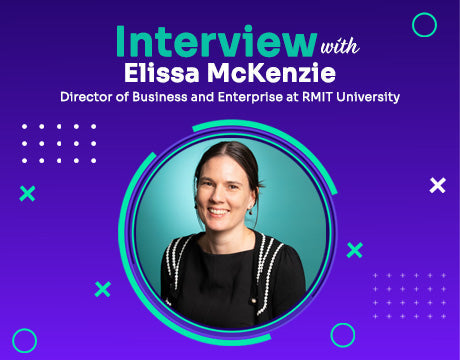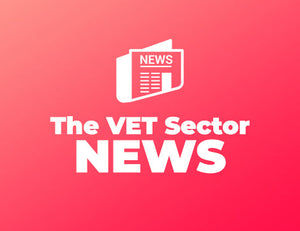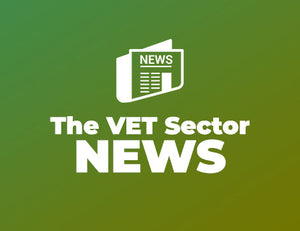
Interview with Elissa McKenzie - Director of Business and Enterprise at RMIT University
SUKH SANDHUExperienced Education Manager with a demonstrated history of working in the vocational education sector. Skilled in learning and teaching models, management, capability building, training, and innovative course and program design. Strong creative and design professional with a Graduate Certificate focused in Education and Masters in Media and Communications from Monash University.
The following is a copy of the interview:
As the Director of Business and Enterprise at RMIT University, what is your role?
I oversee the delivery of high-quality vocational business education within the College of Vocational Education. My team deliver programs ranging from Certificate IV to Associate Degrees in a range of business disciplines. My role is to provide strategic leadership for the team, and I am accountable for quality, innovation, industry connection and collaboration across the suite of programs and delivery methods.
Given your extensive experience with resource design and development, which five main components should learners' resources include?
I like to think of developing learning resources as 'curating a learning journey'. When I worked as a Learning Designer, I saw my role as synthesising and collating resources and content that is available and structuring it in a way that allows the learner to build their skills and knowledge over time. I think that good learning resources should include:
A WIFM (what's in it for me) - the Learner needs to know why they are doing this learning and how it will relate to their individual goals.
Links to industry relevant information and sites - you don't need to spend hours regurgitating content from other sites. Learners need to know where to find the information they need so that they can bookmark it and refer back to it as they progress in their careers. They should learn how to apply industry relevant research skills to stay on top of legislation/regulatory changes, emerging industry trends and current debates.
Opportunities to practice - there should be a range of learning activities that allow the student to connect knowledge to practice and to seek feedback. This can be short activities with immediate feedback (e.g. H5P activities or quizzes) or it might include links to practical activities, discussion points or peer learning opportunities.
Clear navigation - learning is hard enough without using up cognitive load trying to figure out how to move between content or how to submit their work. Clean, simple and easy use navigation makes life better for both Learners and Educators.
Clear links to assessment - if it's not relevant to the assessments then it's not relevant. The resources should indicate how each learning component supports students to prepare for their assessment tasks. When I design any learning resources, I always apply an assessment-led approach and ensure there is constructive alignment.
Why did you decide to pursue a career in vocational education and training?
I fell into the VET sector by accident - but as soon as I landed in it, I knew I had found my calling. I started out as an Administrative Assistant in a private RTO and quickly progressed to an Assistant Manager role. I have always loved the potential and power of VET in changing lives. I love the practical nature of our sector and the direct links to industry. I was also drawn to the integration of work and learning. I have always believed in experiential and practice-based learning and love the ways that this comes together in our programs in VET.
Are there any key skills you believe are necessary to be successful in vocational education and training? If so, what are they?
I have had many conversations with VET practitioners and love the diversity and mixture of skills within our workforce. The one thing that I have seen common across the sector is a genuine passion for vocational education and a deep understanding of the impact what we do has on the lives of our students.
As dual professionals, VET practitioners need to be flexible and adaptable. I have reviewed many capability frameworks that show the depth of skills and knowledge needed - covering the requirements to facilitate high quality learning, meet compliance requirements, build digital resources, and apply current industry knowledge. There are many excellent VET practitioners that know how to combine these skills to transform lives. But as most of them would tell you, there is no 'one size fits all' model. So having the flexibility and adaptability to adapt all of that to the individual needs of learners and industry is incredibly important.
Are there any challenges that you believe educational businesses and enterprises face today that are the biggest obstacles to success?
There are always challenges, and none of them are new. However, I think in a post-pandemic world we are all trying to find the optimum balance for blended learning and how to meet the changing demands of our learners. This year, we have had a lot of students join our programs who have completed their years 11 and 12 in lockdowns. They have become more used to learning from the comfort of their home and balancing family, work and study needs in a unique way. We are not able to simply convert back to how we delivered prior to the pandemic - as now we need to consider how we adapt to ensure a high-quality learning experience and sense of on-campus life, while also bringing forward what the pandemic has taught us about blended and online delivery modes.
I work in business education and the way that people work has significantly changed. For many people that traditionally worked in office environments, they are not going back. They will be working in a hybrid fashion and meeting clients and their teams both in the physical and virtual worlds. As educators, I think we need to consider how we prepare our students for the future ways of working and the types of future technologies they might use.
I also think there needs to be an increased focus on mental health and wellbeing for both students and educators. Across the board, many are experiencing fatigue and stress as they adapt to post-pandemic life. We need to adopt a pedagogy of kindness; one that considers the experience of our students and their families over the last few years.
If you had to choose one thing for educational businesses and enterprises to remember, what would it be?
I think all educational businesses know this, but I always like to remind myself and ground myself in why we are here and the impact we can have for industry and on the lives of individuals. For me, I like to reflect each day on the outcomes that I want my students to achieve and the way they will use this in their careers, whether they are at the beginning, middle or towards the end of the many careers they might have in their lifetime. I think we have a duty to our students to provide a holistic experience that considers their employment outcomes, life-long learning skills, ability to develop their transferable work skills, as well as cultural awareness and an understanding of our many Indigenous cultures.
How important do you believe it is to ensure quality and excellence of student centric learning experiences in order to achieve student success?
I think quality and student-centric learning is essential. Student success means something different to each of our learners. When looking at our programs and resources, I think it is important to really consider what success means to each individual and look at how we are contributing to that success. In my team, we spend a lot of time talking to students and involving them in the learning design process. We collect feedback from students and industry and use that to shape our programs. We've created student personas and profiles to explore individual expectations and use these to ensure the learning process can be tailored to individual needs. The teachers in my area spend a lot of time getting to know their students and what is important to them and are skilled at adjusting their classes to cater to each student's needs.
It has been around 12-13 years since we last worked together, so how would you evaluate the changes in the industry over the last few years?
I've been in the VET sector for over 17 years now in different roles and ways. During the pandemic, my role at RMIT was the Associate Director of Learning Experience. My team helped educators to quickly transition to online learning. Prior to this, we were always trying to encourage more blended and online techniques, but the pandemic accelerated us. More teachers were able to see what was possible and were forced to experiment. They were also quickly able to identify what didn't work and adapt to find the right mix of online and face-to-face for their cohorts.
I've recently been working on a project exploring mixed realities and its application to VET. I am really excited by the potential of these technologies to allow students to explore experiences and situations that are difficult to expose them to safely in other ways, such as high-pressure work environments, conflict situations or high-risk work. The technology enablement of learning in these areas has changed significantly since I started in the VET sector and continues to change more rapidly.
I've also been doing a lot of work around micro-credentials. The conversation around these has been happening for a few years now, but I think there is a lot of potential through micro-credentials for VET providers to respond to industry skill needs far more rapidly and to connect the dots for lifelong learners, helping them to transition to the next steps of their careers in a faster and more succinct way.





